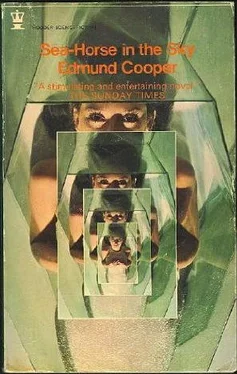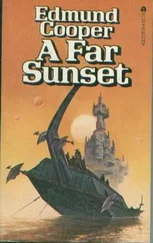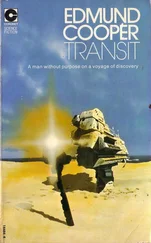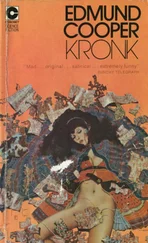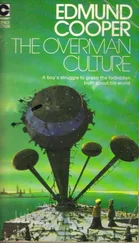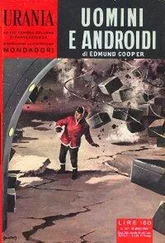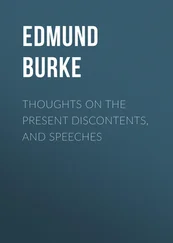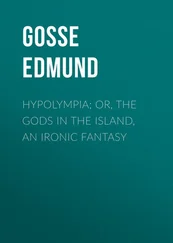That the People of the River were not entirely nocturnal in their aggressive habits was discovered in a frightening fashion by Selene Bergere on the third expedition. She had wandered away from the other three to attend to the needs of nature, and had found a small hollow where both tasks could be performed in relative comfort. The forest was unusually quiet, and it was this that probably saved Selene’s life, together with the fact that several of the nearby trees had shed many of their leaves.
The Stone Age man came running up behind her with far greater speed than any terrestrial could have done. But Selene heard the crackle of the dry fallen leaves and had just enough time to turn and fling her bolas. The cord wrapped itself round his legs and brought him down with a grunt. Selene fled screaming. When the others reached her—and it did not take more than a few seconds—they all went back to investigate. There was no sign of the savage or of the bolas. While these exciting activities were going on, Tore Norstedt occupied himself by building a tough, flat-bottomed boat of very shallow draught. It was designed to carry a maximum of four people and it was to be propelled by short wooden paddles. Oars would have been more efficient, perhaps, for long clear stretches of water. But the course and characteristics of the river had not yet been explored properly. Almost certainly there would be shallows and rapids where paddles could be put to good use.
Bearing in mind that the boat would have to carry its occupants through the mist barrier, whose depth and maximum coldness had yet to be calculated, Tore equipped his boat with a small, detachable cabin, the walls of which were to be insulated by blankets and straw.
It was while Tore was working on his boat one day that he hit upon an idea which, surprisingly, had not occurred to anyone else. Or, perhaps, it had occurred to some of the others and been rejected because of the element of risk involved.
The supermarket, as had already been discovered, was frequently restocked by robots. No one had seen these machines, despite a nocturnal guard being maintained, until Andrew Payne unexpectedly came across one in the small hours. Subsequently, Andrew’s ‘great spiders’ had been photographed—and the terrestrials had been penalized for their curiosity by having their cigarette supply temporarily curtailed. But, apart from an annoying absence of cigarettes, no drastic action had been taken.
Since that time, the night guard had been maintained. But the metal spiders had not been seen again. To Tore Norstedt, this seemed to reinforce his original theory that the zoo keepers could ‘switch off’ the terrestrials in some manner whenever they wished.
It occurred to Tore that the robots probably had to bring their supplies in through the mist barrier somehow—unless there was a subterranean stockpile—and that if it were possible to follow one of them on the return journey, an easy way out of the zoo might be found.
He proposed to arrange a trip string and buzzer, as had been used for the taking of the photograph.
Only this time, instead of the buzzer being in Tore’s room in the hotel, and linked to his travelling clock, both he and the buzzer would be concealed in the supermarket. The buzzer would serve simply to wake him up if he should fall asleep.
Also attached to the trip string would be a lasso with small, multiple nooses, the other end of the lasso being secured round Tore’s waist. The spiders had four feet and four arms. Tore was sure he could arrange the nooses in such a way that it would be virtually impossible for a robot to enter the supermarket without entangling one or more of its appendages. Once that happened, wherever the spider went—even if the night were dark and the terrain difficult—Tore would be able to follow.
That, at least, was the theory. Tore said nothing about his plan to Russell or, indeed, to anyone. He had a naive and childish desire to be able to stroll in at breakfast time and say casually: “Oh, by the way, I have found out where the robots come from, and I think there is an easy way through the mist barrier.”
So he made his multiple lasso very carefully out of tough wire and, late on the night that he chose for his experiment, invented some story about a special guard duty for the benefit of Andrea and Janice, with whom he had developed a more or less permanent and surprisingly successful menage a trois.
Then he took himself across to the supermarket, set the trap and hid himself discreetly behind a stack of cereal packages.
As he left the hotel, he had briefly exchanged a word with Anna Markova, whom he met returning after a short evening walk.
And that was the last that anyone saw of him alive.
ABSU MES MARUR and his pathfinder, a small wiry man, darker and yet even more mongolian in features than his master, brought back to the Erewhon Hilton what was left of Tore Norstedt. They rode their pulpuls up to the hotel late one afternoon when a pleasantly cool breeze was blowing away the little drifts of feathery seeds that had been accumulating, despite frequent attempts at clearance, for several weeks.
The battered, barely recognizable and half-severed body of Tore Norstedt was slung across the back of the pathfinder’s pulpul. Janice was the first to see it, and mercifully fainted after uttering a thin and heart-rending scream.
As the rest of the terrestrials poured out of the hotel, Absu said: “Russell, my friend, bid your women to leave us. What I sorrowfully bring you is enough to challenge the eyes and stomach of a man.”
John Howard was already shepherding the women away.
“There is a place where we have already buried one of our companions,” said Russell, looking at Tore with difficulty. “I would be grateful, Absu, if we can take the body of our friend there, also. I think we shall want to lay him to rest in the earth as soon as possible.”
Absu and the pathfinder dismounted. They followed Russell and John Howard to the place where Marina was buried, the pathfinder leading his pulpul with its sad and terrible burden.
The feathery seeds from the savannah were already piled high over Marina’s grave, with only the tip of the cross showing above the whitish, billowy mound. Russell found the exact spot with difficulty. He was thinking bleakly that perhaps the time had come to establish a formal cemetery.
Presently the small party was joined by Andrew Payne, who brought two spades. He had also brought a plain white sheet from the hotel. He spread the sheet out, and Tore was laid gently on it.
Absu said: “Lord Russell, this my servant, Farn zem Marur, discovered the body of your warrior. Greet him, that he may speak of it.” Then he turned to the pathfinder. “Greet the lord Russell Grahame,” he said solemnly. “Member of Parliament, Voice of the Queen’s People, Creator of the Royal Laws and one of great stature in his own land.”
Farn zem Marur went down on his knees, took a poniard from inside his leather jerkin, placed the point on his breast and offered the hilt to Russell. “Lord Russell Grahame, I am Farn zem Marur, pathfinder and warrior, if my life is required.”
“Welcome,” said Russell, at a loss. “You bring a sad burden, yet you are welcome.” He held out his hand to take the hilt of the poniard and give it back to the pathfinder. He knew that Absu was very keen on formality, and hoped that he was doing the right thing. He wasn’t. “Do not touch the weapon,” warned Absu, “unless you wish to kill him. He needs to know only that his life is not required.”
“Stand, Farn zem Marur,” said Russell, gravely. “Your life is not required.”
The pathfinder stood up, a look of relief on his face. “Lord, I may speak?”
Читать дальше
